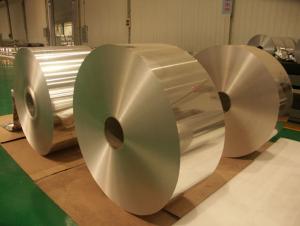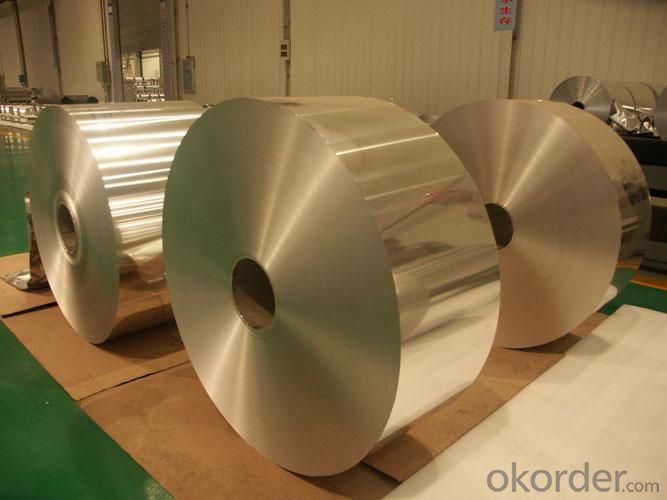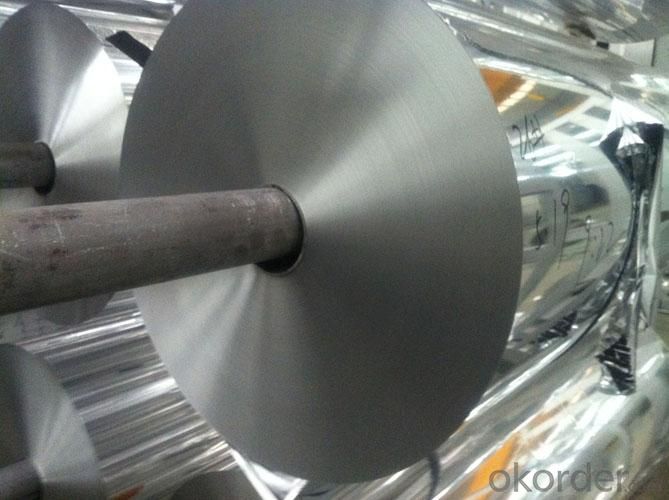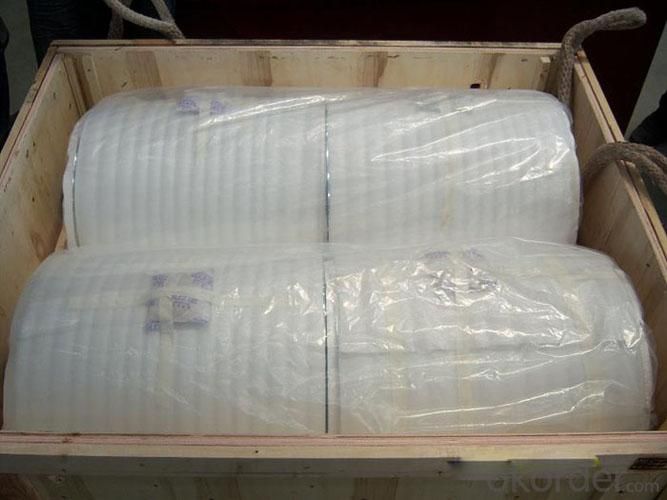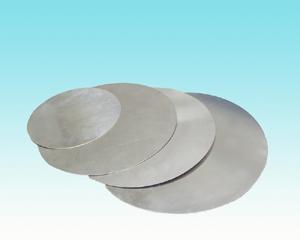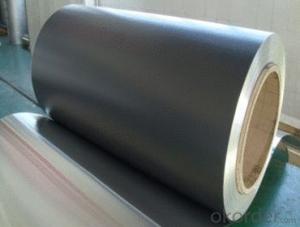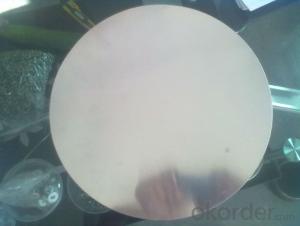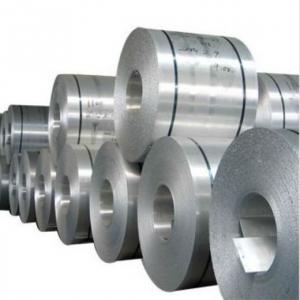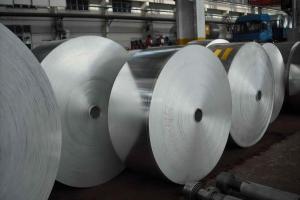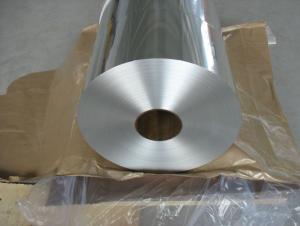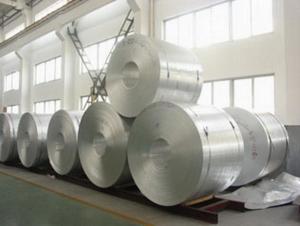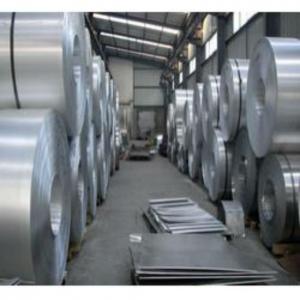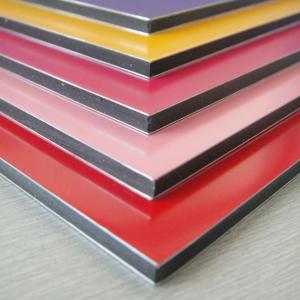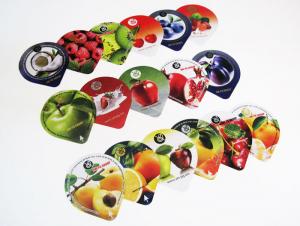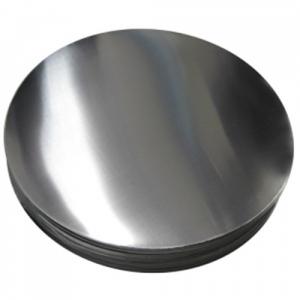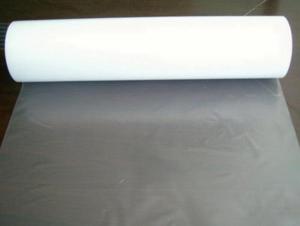Aluminum Foilstock for Household Packaging
- Loading Port:
- China Main Port
- Payment Terms:
- TT or LC
- Min Order Qty:
- 20Tons m.t.
- Supply Capability:
- 6000Tons Per Month m.t./month
OKorder Service Pledge
OKorder Financial Service
You Might Also Like
Quick details of Aluminum Foilstock
|
Alloy: |
1235/8011/8079 |
|
Temper: |
H14/H16/H24/H26 |
|
Thickness: |
0.28~0.3mm (±0.01mm) |
|
Width: |
1000-2020mm (±1mm) |
|
Core I.D: |
405/505/508mm |
|
Surface Quality: |
Good appearance with no-crack and well-distribute grain. |
|
Build Up: |
Tight slit edges free from cracks, layer to layer shift not more than 2 mm. |
|
Profile: |
-0/+1% |
|
Flatness: |
Mill flatness coil having slight edge waviness rather than center buckles shall be acceptable. |
|
Rolling Performance: |
Re-rollable to the final desired gauges |
|
Standard: |
GB/T3198 / ASTM-B209 |
Usage/Application of Aluminum Foilstock
Household foils, container foils, lidding foils, industrial foils, lamination foils.
Packaging & Delivery of Aluminum Foilstock
Packing: seaworthy wooden box with pallet
Delivery: to be loaded by 1 x 20 feet container
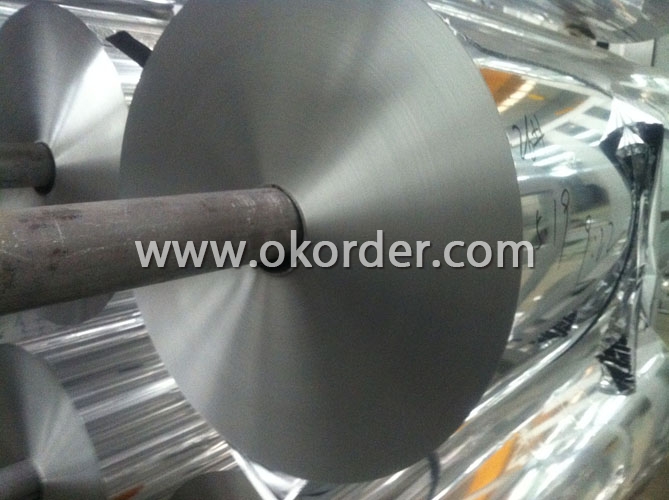
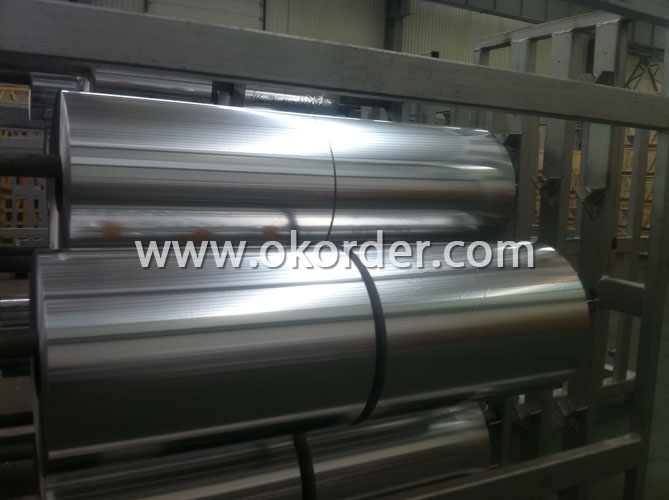
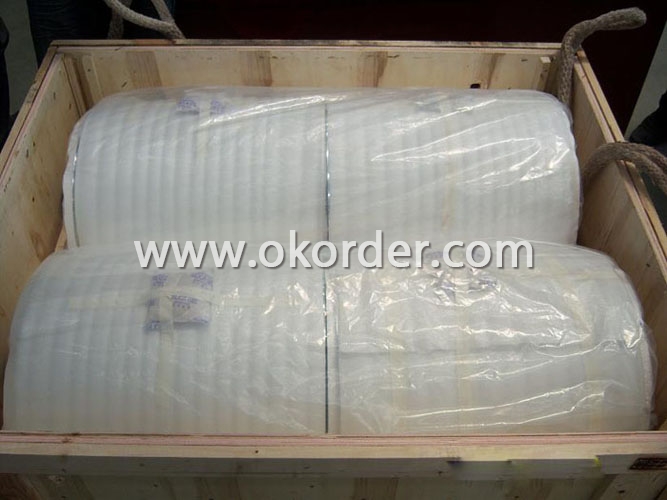
- Q: Explain how aluminum production and use contribute to global warming.
- <p>Aluminum production contributes to global warming through the emission of greenhouse gases, primarily carbon dioxide. The process of smelting aluminum from bauxite ore is energy-intensive, often relying on fossil fuels, which release CO2. Additionally, aluminum production generates perfluorocarbons (PFCs), potent greenhouse gases. The use of aluminum in various industries and products also has an indirect impact, as it drives demand for energy and resources. Furthermore, aluminum's longevity in landfills means it doesn't decompose, contributing to waste issues and indirectly affecting global warming through methane emissions from landfills.</p>
- Q: What are the various applications of aluminum oxide in different industries and daily life?
- <p>Aluminum oxide, also known as alumina, has a wide range of applications due to its hardness and other properties. It is used as an abrasive in products like sandpaper and grinding wheels. In the electronics industry, it serves as a substrate for semiconductor devices. It's also a key component in the production of aluminum metal through the Hall-H茅roult process. In the medical field, aluminum oxide is used in dental materials and as an antiperspirant. Additionally, it's found in cosmetics, ceramics, and as a catalyst in various chemical processes.</p>
- Q: Exploring the impact of reducing aluminum usage on global warming.
- <p>Using less aluminum in our daily lives can contribute to reducing global warming, albeit marginally. Aluminum production is energy-intensive, requiring significant amounts of electricity, often from fossil fuels. This process generates greenhouse gas emissions. By reducing demand for aluminum, we can potentially lower the energy consumption and emissions associated with its production. However, aluminum's impact on global warming is relatively small compared to other industries like transportation, energy production, and agriculture. Thus, while reducing aluminum use is beneficial, it should be part of a broader strategy to combat climate change that includes transitioning to renewable energy, improving energy efficiency, and adopting sustainable agricultural practices.</p>
- Q: What are some typical combinations of metals that are used to create aluminum alloys?
- <p>Common alloys used for aluminum include 1000 series, which are nearly pure aluminum. The 2000 series, which contains copper, is known for its strength. The 3000 series, with manganese, is good for its formability. The 5000 series, which contains magnesium, offers good strength and welding characteristics. The 6000 series, which includes silicon and magnesium, is known for its strength and resistance to corrosion. Lastly, the 7000 series, which contains zinc, is the strongest and most commonly used for structural applications. These alloys are chosen for their specific properties such as strength, corrosion resistance, and workability, depending on the application.</p>
- Q: This question asks for the amount of energy needed to produce a single aluminum ingot.
- <p>The energy required to produce an aluminum ingot varies based on production methods and efficiency. On average, it takes about 14 to 25 kWh of electricity to produce one kilogram of aluminum. This high energy consumption is due to the electrolytic process used to extract aluminum from its ore, bauxite. The Hall-H茅roult process is the dominant method, which involves passing an electric current through a bath of molten cryolite to reduce aluminum oxide to aluminum metal. Energy efficiency in aluminum production has been improving, but it remains a significant factor in the overall carbon footprint of aluminum products.</p>
- Q: I would like to ask where there is a need for these minerals? How much is it per ton?
- This kind of silica is good, and the price is about 100 yuan / ton.
- Q: Is it safe and effective to use aluminum foil for wrapping food items in a refrigerator or freezer?
- <p>Yes, you can use aluminum foil to wrap food in a refrigerator or freezer. Aluminum foil is a good insulator and can help keep food fresh by preventing freezer burn and moisture loss. It also protects food from absorbing odors. However, it's important to ensure the foil is tightly wrapped around the food to maintain its effectiveness. Additionally, avoid using aluminum foil with acidic foods as it can react with them, potentially causing a metallic taste.</p>
- Q: This question asks for common uses of aluminum in everyday life.
- <p>Aluminum is widely used in daily life due to its lightweight, corrosion resistance, and affordability. Some applications include: 1) Food and beverage cans for preserving food and drinks. 2) Aluminum foil used for cooking and food storage. 3) Construction materials, such as window frames and roofing. 4) In transportation, like car parts and airplane components to reduce weight. 5) Electrical wiring due to its high conductivity. 6) Household items like pots and pans, and furniture. 7) Packaging materials for various products. 8) In sports equipment like bicycle frames and tennis rackets. These applications highlight aluminum's versatility and importance in everyday life.</p>
- Q: This question asks about the potential health hazards associated with exposure to aluminum in a work environment.
- <p>Working with aluminum can pose certain health risks, primarily due to inhalation of aluminum dust or fumes. Chronic exposure may lead to respiratory issues such as aluminum lung disease, characterized by shortness of breath and cough. Additionally, aluminum has been linked to neurological disorders, including cognitive dysfunction and memory loss. There's also evidence suggesting a potential connection to Alzheimer's disease, though this is not conclusively proven. Skin contact with aluminum can cause irritation or allergic reactions in some individuals. It's important for workers to use proper protective equipment and follow safety guidelines to minimize these risks.</p>
- Q: Exploring the possibility of using materials that are more eco-friendly than aluminum.
- <p>Yes, various alternative materials can be used that are more environmentally friendly than aluminum. These include biodegradable plastics, recycled materials, and natural fibers such as bamboo and hemp. For instance, bioplastics can be derived from renewable sources like corn starch or sugarcane, reducing the carbon footprint. Recycled materials not only reduce waste but also save energy compared to producing new materials. Natural fibers are sustainable and can be used in construction, packaging, and other applications traditionally served by aluminum. However, it's crucial to consider the specific application's requirements and the lifecycle impact of these alternatives.</p>
Send your message to us
Aluminum Foilstock for Household Packaging
- Loading Port:
- China Main Port
- Payment Terms:
- TT or LC
- Min Order Qty:
- 20Tons m.t.
- Supply Capability:
- 6000Tons Per Month m.t./month
OKorder Service Pledge
OKorder Financial Service
Similar products
Hot products
Hot Searches
Related keywords
